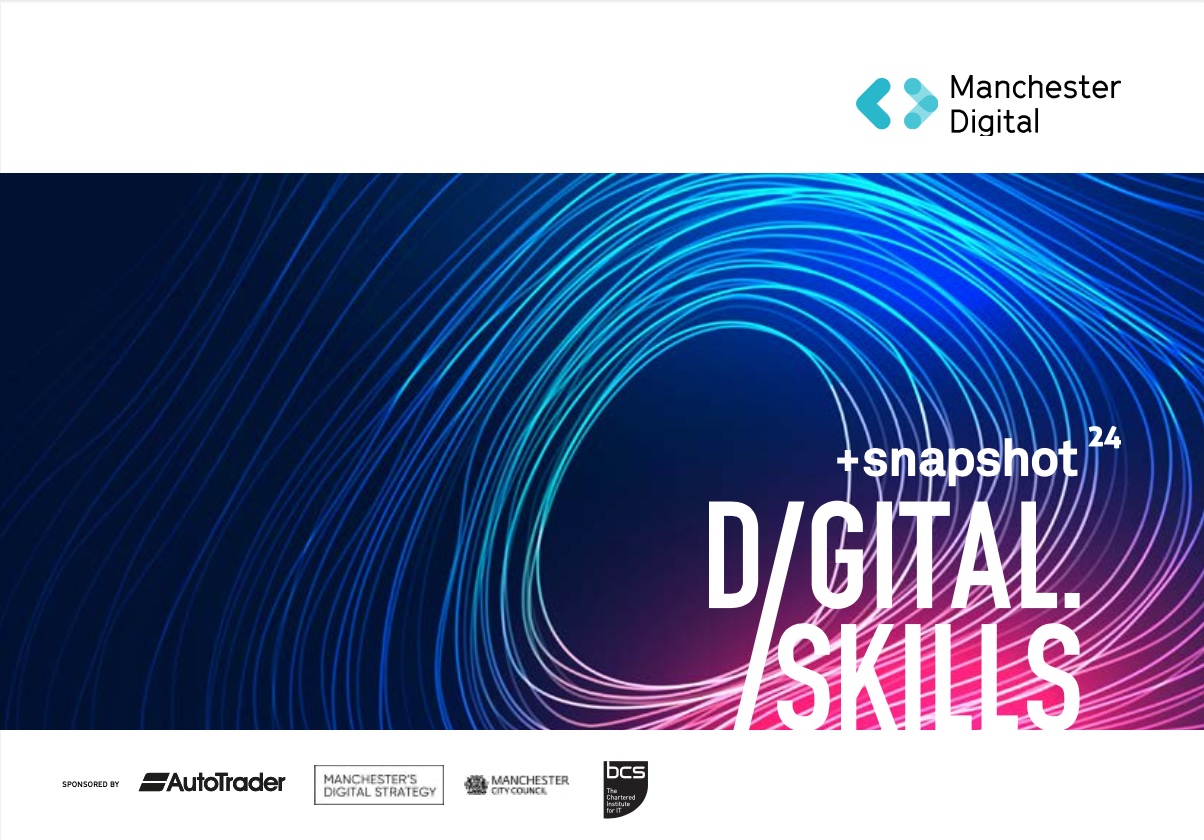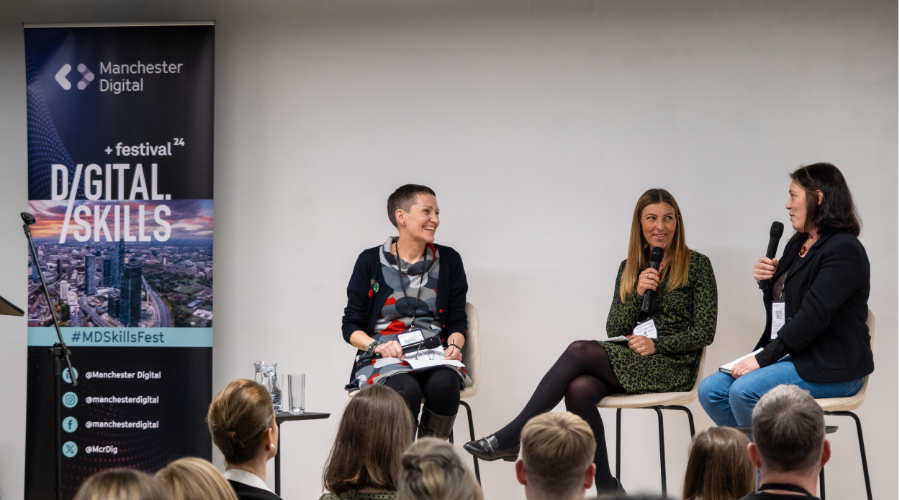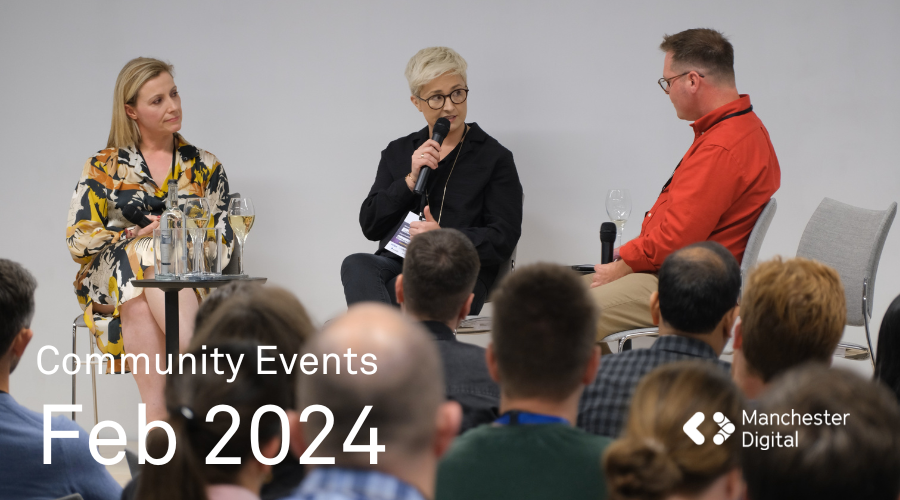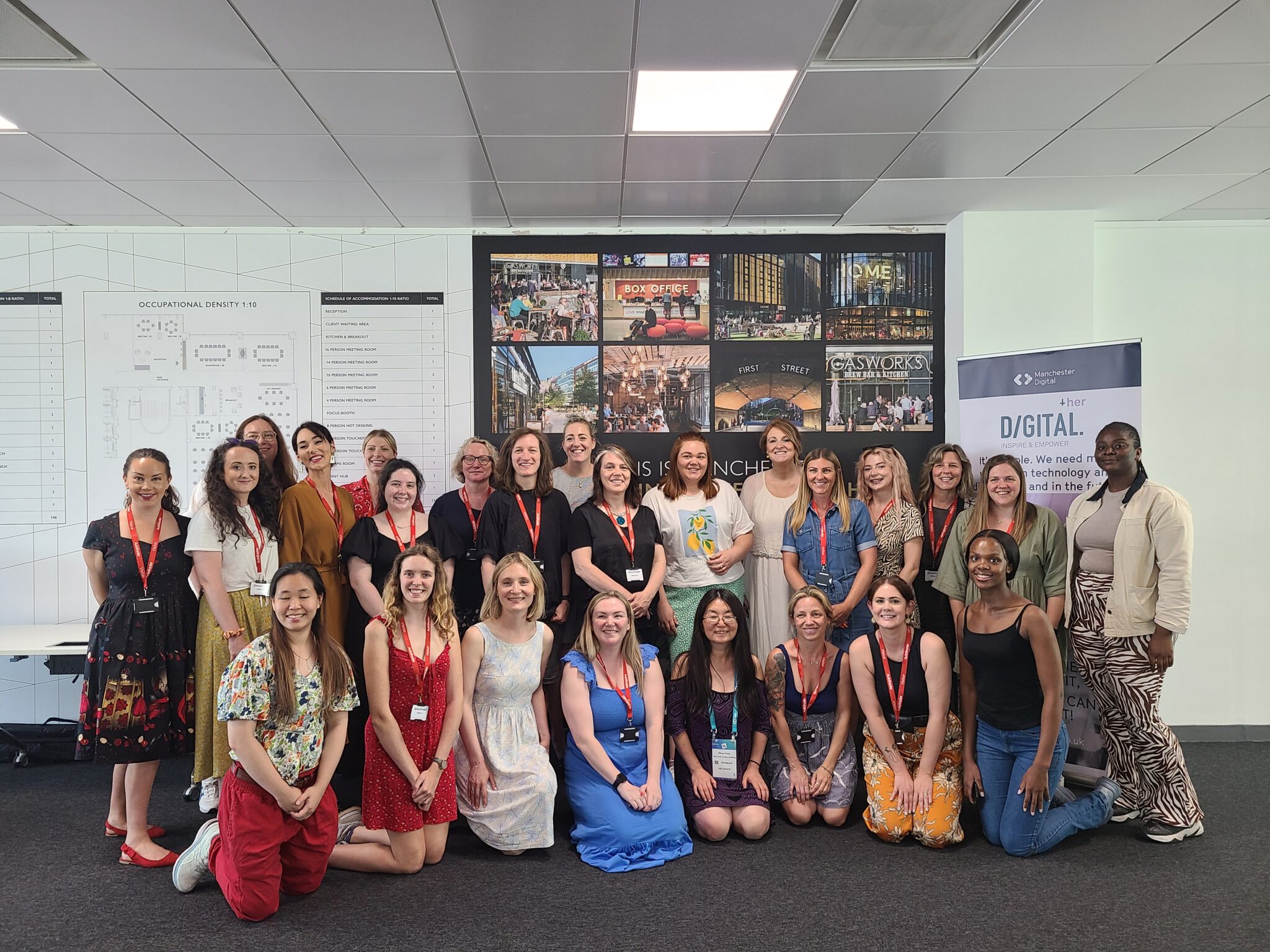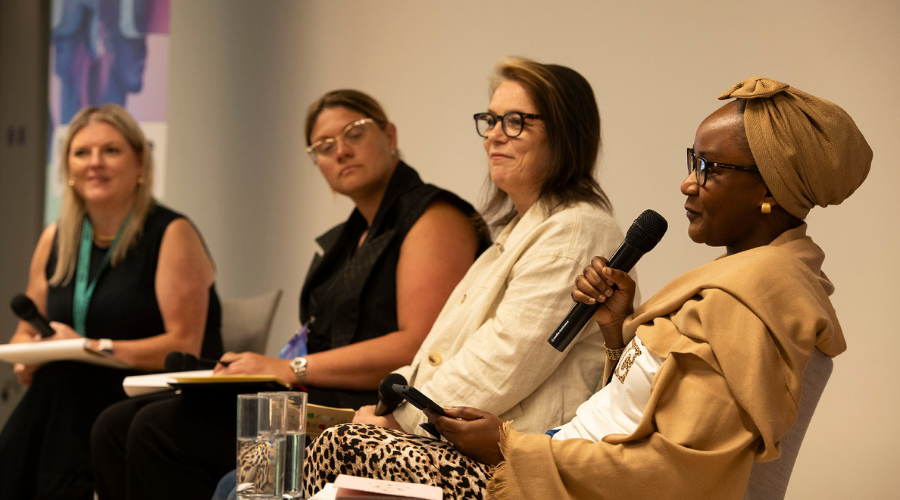
Manchester’s tech industry gathered last week for Manchester Digital’s annual Fintech Conference. The agenda at No.1 Circle Square was as hot as the weather with every aspect of the region’s strong fintech sector being explored, including regulation, new bills being passed into Government, digital transformation and the rapid advancement of AI within the sector.
Discussion and analysis was drawn from leading brands including Slalom, Lloyds Banking Group, Barclays, Principality Building Society, Corlytics, Chainalysis and many more.
All attendees were encouraged to bring a tin to support local charity Mustard Tree, which supports people facing poverty and homelessness.
We’d like to say a huge thanks to our event sponsors, Slalom and Bruntwood SciTech, for their ongoing support.
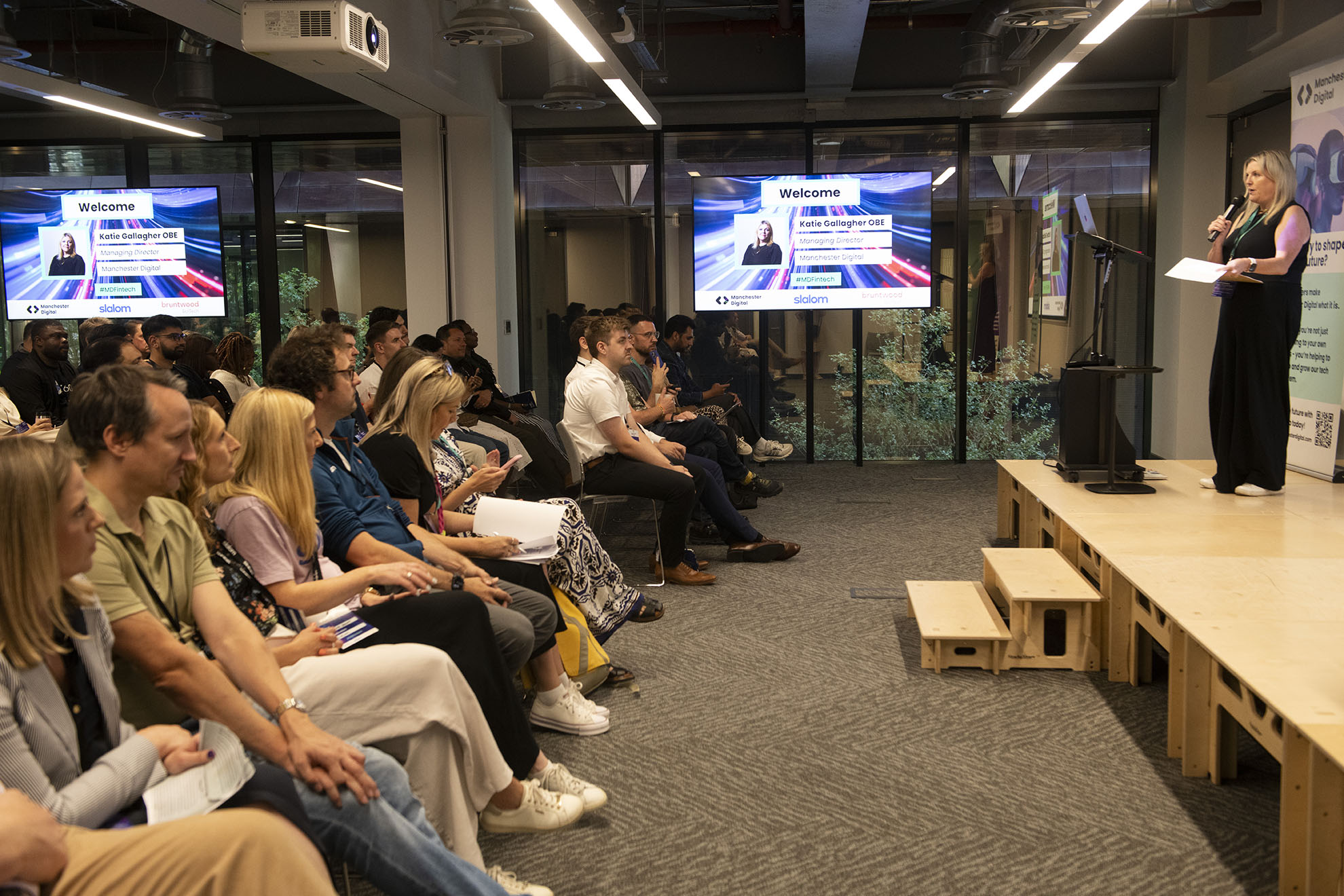 Katie Gallagher OBE welcome guests to the Fintech Conference 2025
Katie Gallagher OBE welcome guests to the Fintech Conference 2025
Here’s our round up of each session:
How can AI really transform your organisation? The benefits of AI-accelerated migration
Hugh Freestone, Senior Delivery Principal at Slalom, was joined by Emily Roberts, Data Platform Lead, from the largest building society in Wales, Principality Building Society, to discuss how they implemented the use of AI agents as an accelerator on a large migration transformation.
Emily explained, “We deliver really good outcomes for our members and our data platform is key to our organisation, in order to spot trends. We realised that migrating our programme would have taken 18 months, so we looked into using AI. With Slalom’s expertise and support, we realised that using AI would be a lot quicker and take around seven months, which was a real gamechanger.”
Despite there being numerous challenges and hurdles to overcome on such a large project, such as bringing stakeholders onside, as well as the team of engineers, the overall project is a huge success, and brilliantly supported by the team at Slalom.
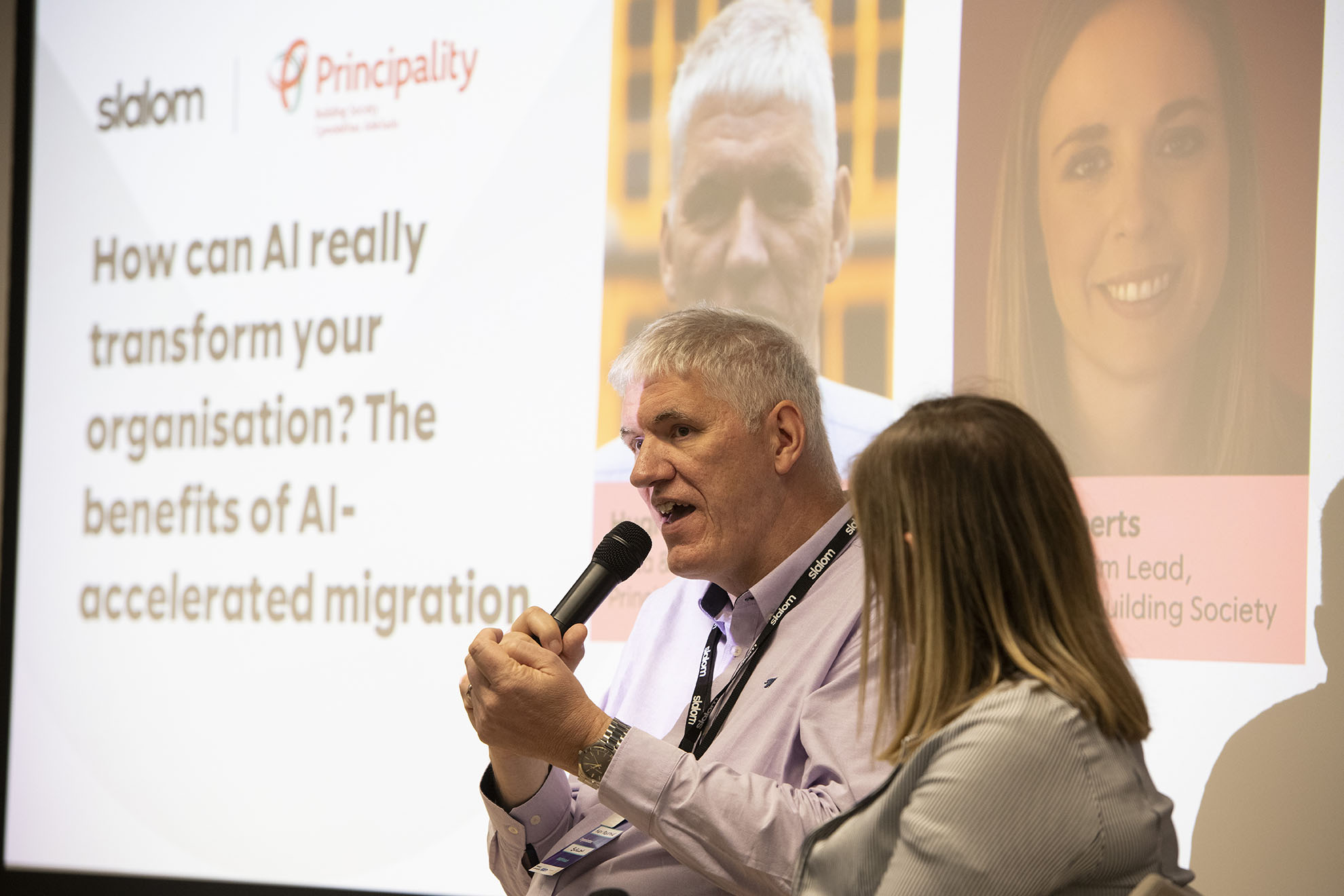 Hugh Freestone (Slalom) and Emily Roberts (Principality Building Society)
Hugh Freestone (Slalom) and Emily Roberts (Principality Building Society)
Trust & Security - Navigating Risk in a Digital-First World
Chaired by Tim Brewin, Senior Product Owner at Lloyds Banking Group, panellists included Chris Bush, Head of the Design Group, Nexer Digital; James Cowe, CTO of Architecture and Platform Engineering at Barclays, and Matthew Workman, Cyber Sales Account Manager, CyberLab discuss how fintechs are balancing innovation with security, compliance and customer trust.
There was a really insightful discussion around trust within fintech and how the growing use of AI sits within the important factor of customer trust.
James said: “Historically, trust was around safeguarding money but over recent years that is now digital first. We're redefining trust, consistency, transparency and reliability. When it comes to AI, transparency is key. For example, if we use AI to detect a fraudulent transaction, but we explain the system to the customer then it helps them understand why it has to be done, which helps trust levels.”
Chris added, “Some companies using AI are very open about what they’re doing, which really helps build trust. For example, when using Booking.com, it tells you that the chat advisor is supported by AI and you have the choice to switch that off.”
Matthew stated the huge importance of cyber security within trust building for customers. “Show customers how you’re protecting their data. Show all of your credentials, such as Cyber Essentials Plus etc.”
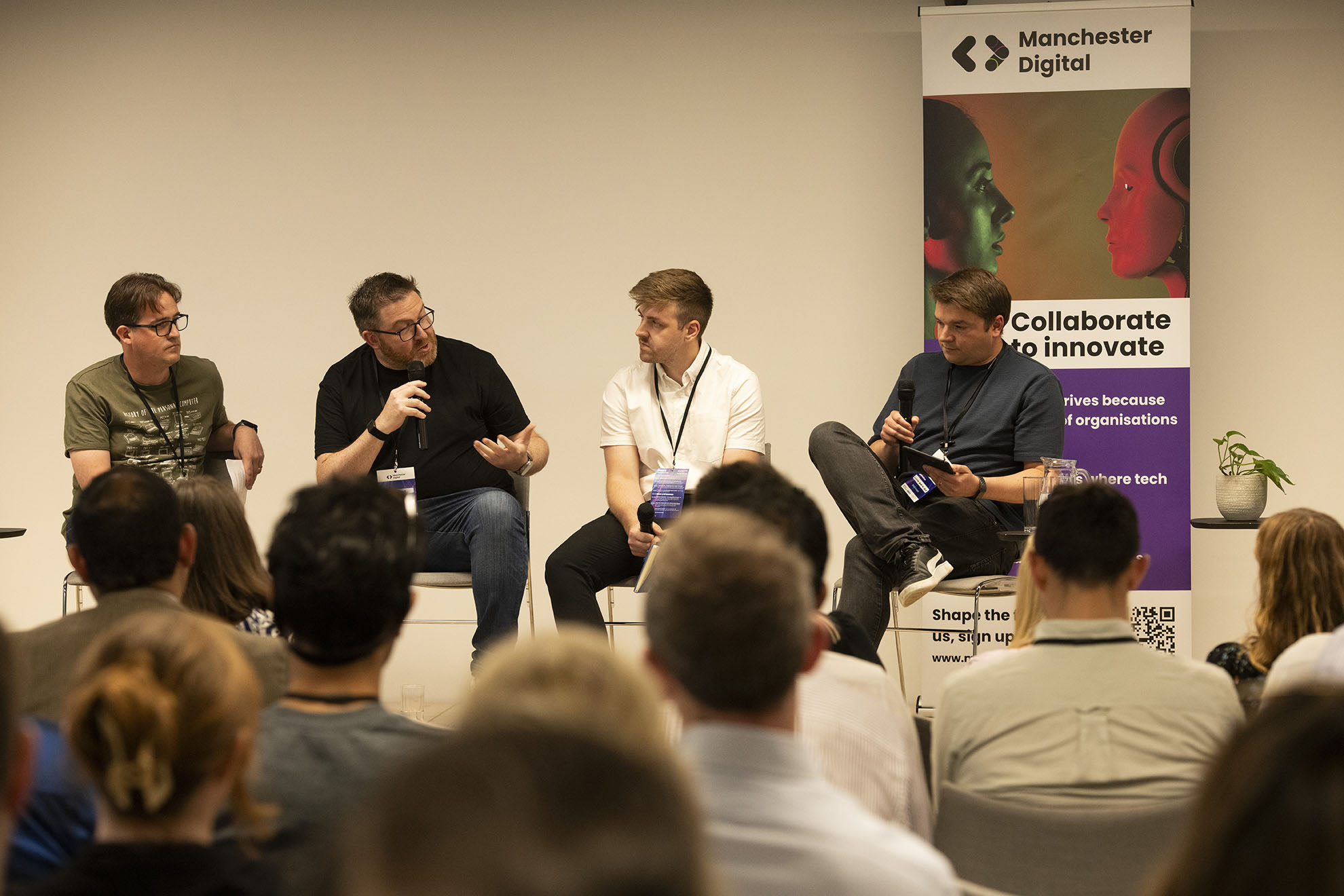 L-R: Chris Bush (Nexer Digital), James Cowe (Barclays), Matthew Workman (CyberLab), Tim Brewin (Lloyds Banking Group)
L-R: Chris Bush (Nexer Digital), James Cowe (Barclays), Matthew Workman (CyberLab), Tim Brewin (Lloyds Banking Group)Northern AI - Innovating With Purpose at Lloyds Banking Group
Suzanne Ellison, Head of Product at Lloyds Banking Group, delivered a brilliant lightning talk on how the organisation has applied emerging technologies to deliver real impact for customers and communities, and what it means to build AI solutions responsibly at scale. She described how the Northern tech team was very keen to make its mark within AI, which they certainly have done.
Firstly, they developed a new knowledge management tool for the customer support services called Athena. The previous solution was slow and difficult to use, so customer service colleagues ended up creating their own documents or asking colleagues queries through Teams, which was very slow. The new solution - Athena - is now a consistent single source of truth, and ultimately has ended up saving 50% of time involved in finding the information.
The other AI tool developed was a complaints tool called Merlin. It was important to communicate to customers that this was an AI tool to help clarify the complaint with human support behind it. This tool classifies the complaint and gets it to the right person. It also has a vulnerability classifier to identify which customers need immediate support. The results were that there was a huge uplift in accuracy on classifications - from 55% to 90+%.
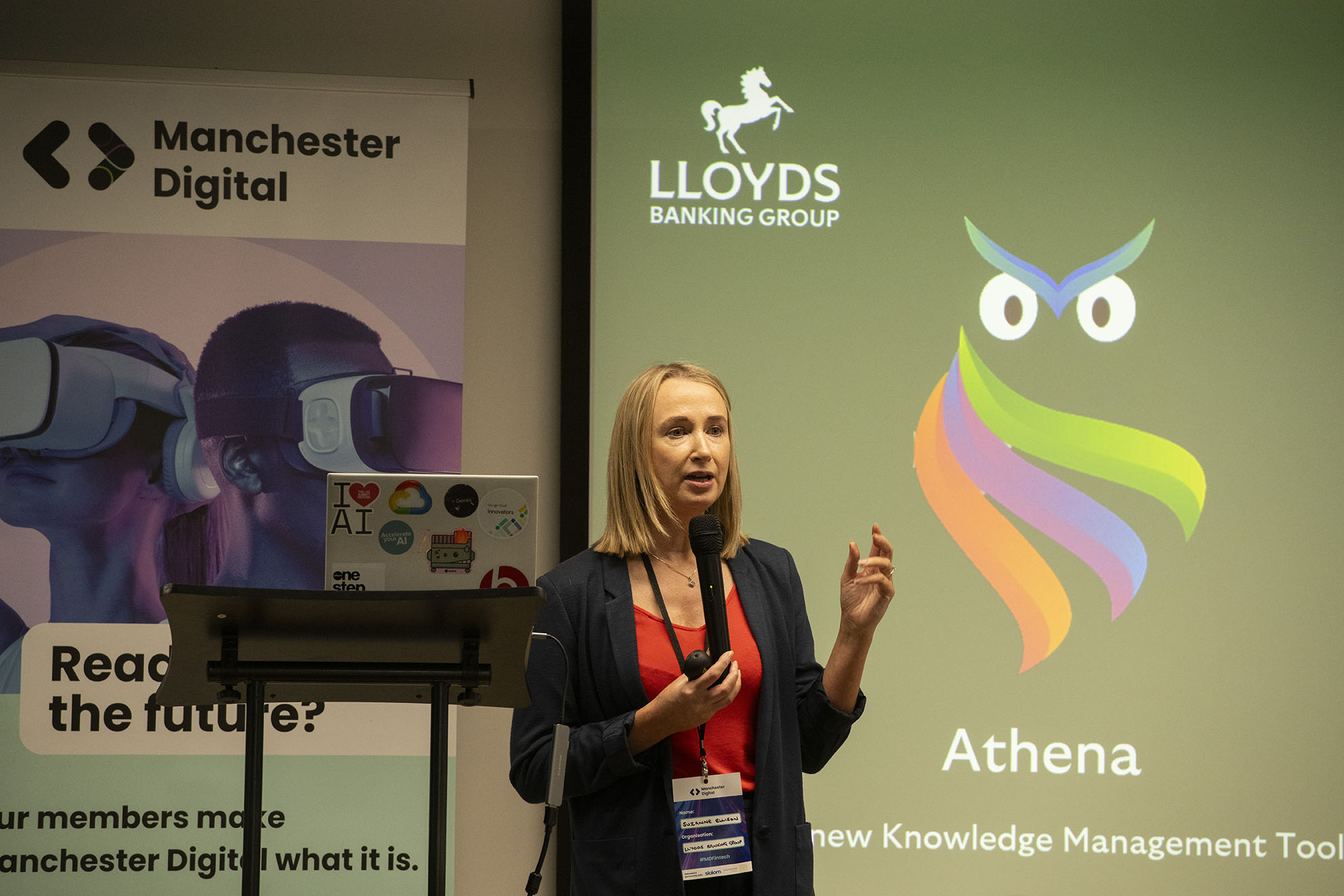 Suzanne Ellison (Lloyds Banking Group)
Suzanne Ellison (Lloyds Banking Group)RegTech & Regulation - Innovating Within the Rules
In this panel chaired by Manchester Digital’s MD Katie Gallagher OBE, Elaine Mullan, Head of Marketing, Corlytics; Dr Nafisa Usman, Lecturer in Financial Technology and Digital Business, University of Salford and Wendy Saunders, Partner and Head of Financial Services Regulatory, Lewis Silkin talked about how RegTech is enabling financial services to adapt more efficiently to policy shifts, reduce manual compliance processes and embed regulatory thinking into product development.
Elaine said, “Compliance should be everyone’s problem and it should be put into a proper framework from day one. Not only does this help with better management of regulatory obligations, but it will also help protect the business from cyber breaches. “I would always say spend now to save later because it can be very expensive to patch things later. If compliance lives inside the product lifecycle, innovation stops being a regulatory gamble and becomes a real competitive edge.”
“We always say spend now to save later because it can be very expensive to patch things later. If compliance lives inside the product, it becomes a real competitive edge.”
Nafisa said: “There should be a compliance by design model - bring everyone on board, collaborate and bring in the regulators. Let them be involved so you can be adaptable. Regulation is a catalyst for innovation.”
Wendy added, “Currently there is a lot of de-duplication of legislation post-Brexit and introduction of the Consumer Duty, which will take some time to unravel. Building relationships with regulators can be tricky for startups and there is often a lack of trust.
“My advice for startups is to understand that the regulators do follow up and the fines can be very hefty. A challenger bank was fined £29m by a regulator and they were given chances. So it’s better to work with the regulators from the offset.”
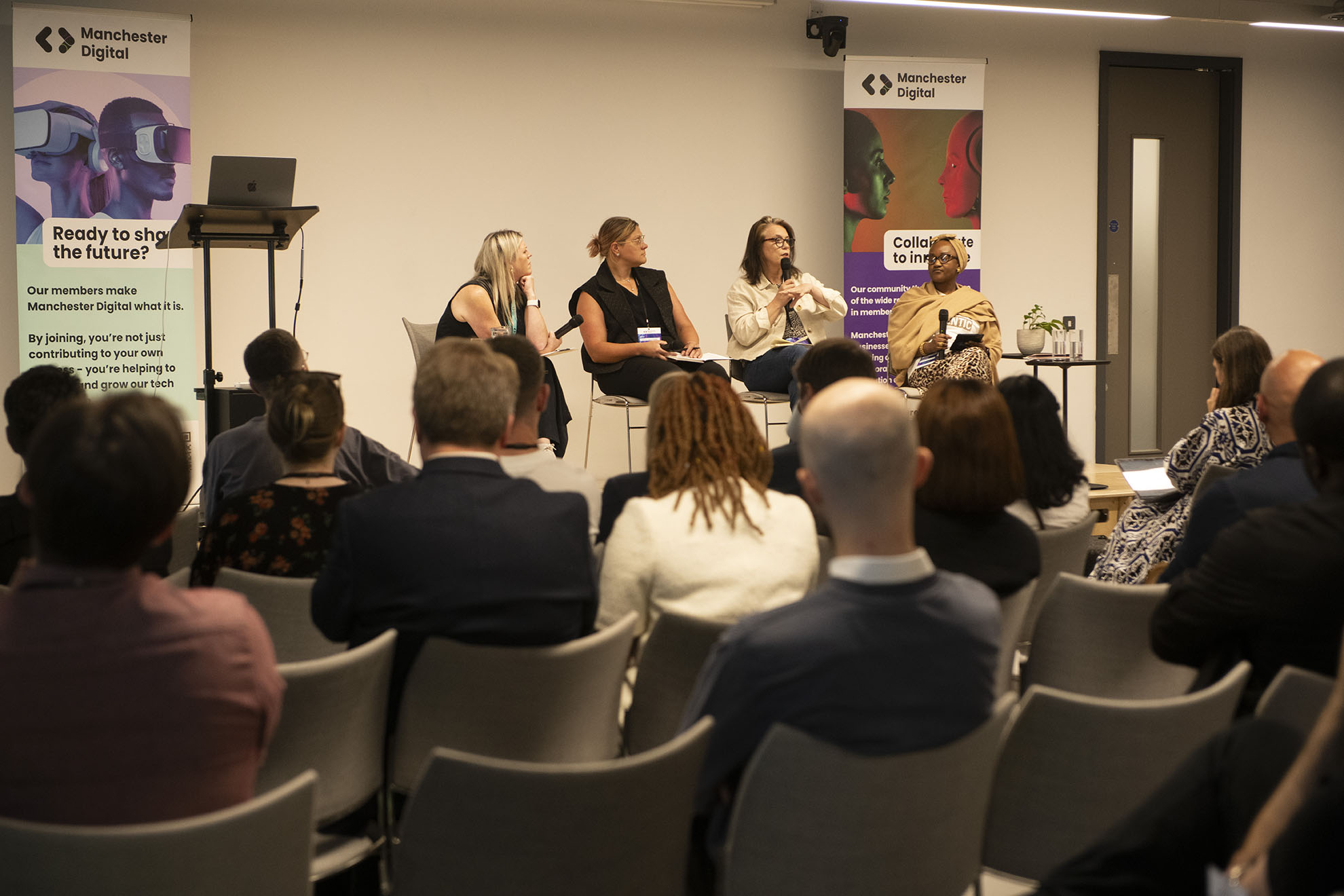 L-R: Katie Gallagher OBE (Manchester Digital), Wendy Saunders (Lewis Silkin), Elaine Mullan (Corlytics), Dr. Nafisa Usman (University of Salford)
L-R: Katie Gallagher OBE (Manchester Digital), Wendy Saunders (Lewis Silkin), Elaine Mullan (Corlytics), Dr. Nafisa Usman (University of Salford)Blockchain, Crypto and the Future of Decentralised Finance (DeFi)
This panel was chaired by Chris Air, Partner, DAC Beachcroft, with speakers Alex Lynham, Founder & CTO, Envoy Labs; Emily Kelly, Senior Manager, Alexander & Co and Paul Taylor, Senior Director of Global Services, Chainalysis.
The panel discussed that blockchain and crypto are entering a new era of mainstream adoption and regulatory clarity in the UK. With further usability, real-world applications and a robust regulatory framework on the horizon, both opportunities and compliance challenges are growing for businesses in the sector.
Alex said: “Blockchain protocols are now being applied to solve tangible, real-world problems such as multi-entity custodianship of assets like stablecoins via DAOs. The ecosystem has matured rapidly, with greater sophistication and usability than just two years ago."
Paul added: “I have been a sceptic about some of the tech and innovation, but real world assets are increasingly being tokenised and managed on blockchains, enabling faster, more transparent transactions. If you look at traditional finance, it’s very slow to transfer money across borders, but block-chain based remittance across borders can take seconds. Think about charities in war zones - then this has really useful effects in humanitarian use cases.”
Emily delivered a warning around the Crypto Asset Reporting Framework, which is coming into effect in January 2027 for the UK along with 51 other countries. This means that any UK-based reporting cryptoasset service providers will have to disclose the transaction data of their users to HMRC. Her advice was to ensure all historic gains, losses and income are reported now, as she expects HMRC will increase enquiries into those who have not reported anything once they have access to this information. She also stressed that a capital gain can arise when trading one crypto to another so tax advice should be sought even if you may not expect to have made a capital gain. HMRC has already added a section in the 2025 self-assessment tax return for cryptoassets and it was also discussed that the HMRC cryptoassets manual provides valuable guidance for taxpayers.
What’s next for Fintech?
In the final session of the day, Katie Gallagher OBE was joined by Luke Kosky, Fintech Policy Lead at the Startup Coalition, to discuss new regulations being introduced for Buy Now Pay Later (BNPL) lenders; the Data (Use and Access) Bill 2025 which was just passed, and a new AI sandbox, which will give fintechs a safe environment to develop and test AI-driven solutions, to be launched in October.
The UK government will introduce new regulations for Buy Now Pay Later (BNPL) lenders in 2026, marking a major shift from the previous, largely unregulated environment. The reforms aim to protect consumers from “debt traps” and bring BNPL into line with other regulated credit products. Luke explained there is some concern about the complexity of new BNPL rules, particularly the risk of creating confusing, overlapping tiers of consumer protection if not carefully coordinated.
The newly passed Data (Use and Access) Bill 2025 introduces Smart Data Schemes, which will expand secure, government-mandated data sharing beyond Open Banking into sectors like financial services, energy, telecoms and retail.
Luke gave some great examples around the benefits of this bill. The first was that women statistically have lower pensions than men, but if they have the data regarding all of their pensions in one dashboard, they can then make more informed decisions about their pensions and contributions.
The second example was that if a lender can gather information about a small business very quickly, it could then allow them to take a business loan quicker, which would be hugely beneficial for supporting small businesses.
Luke emphasised the importance of startups engaging with government and regulators by sharing their real-world challenges and experiences. Policymakers are always seeking practical case studies to inform better regulation and policy development.
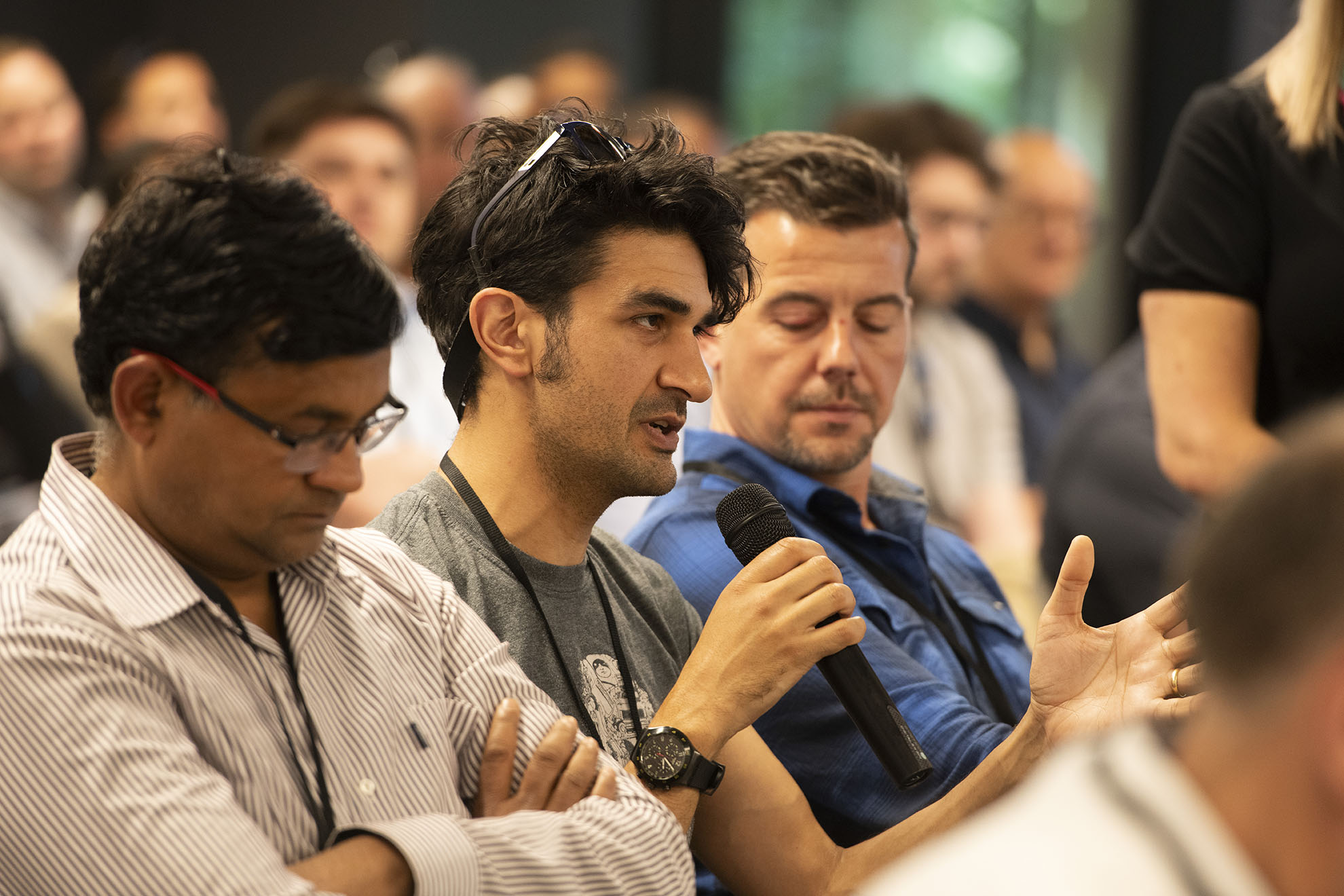
_____________________________________
Caroline Grant, Manchester Managing Director, said:
“Slalom was proud to sponsor Manchester Digital’s 2025 Fintech Conference. It was great to join forces with Principality Building Society to talk about how AI is helping accelerate migration and unlock real value in financial services. We're really passionate about making sure innovation goes hand in hand with data security and delivering real-world impact through emerging tech.”
If you'd like to connect, drop a line to caroline.grant@slalom.com.
_____________________________________
Sign up to our exciting next event - MD Future Live on 18th September.
MD Future Live is a full day immersive event, exploring the future direction of tech.
